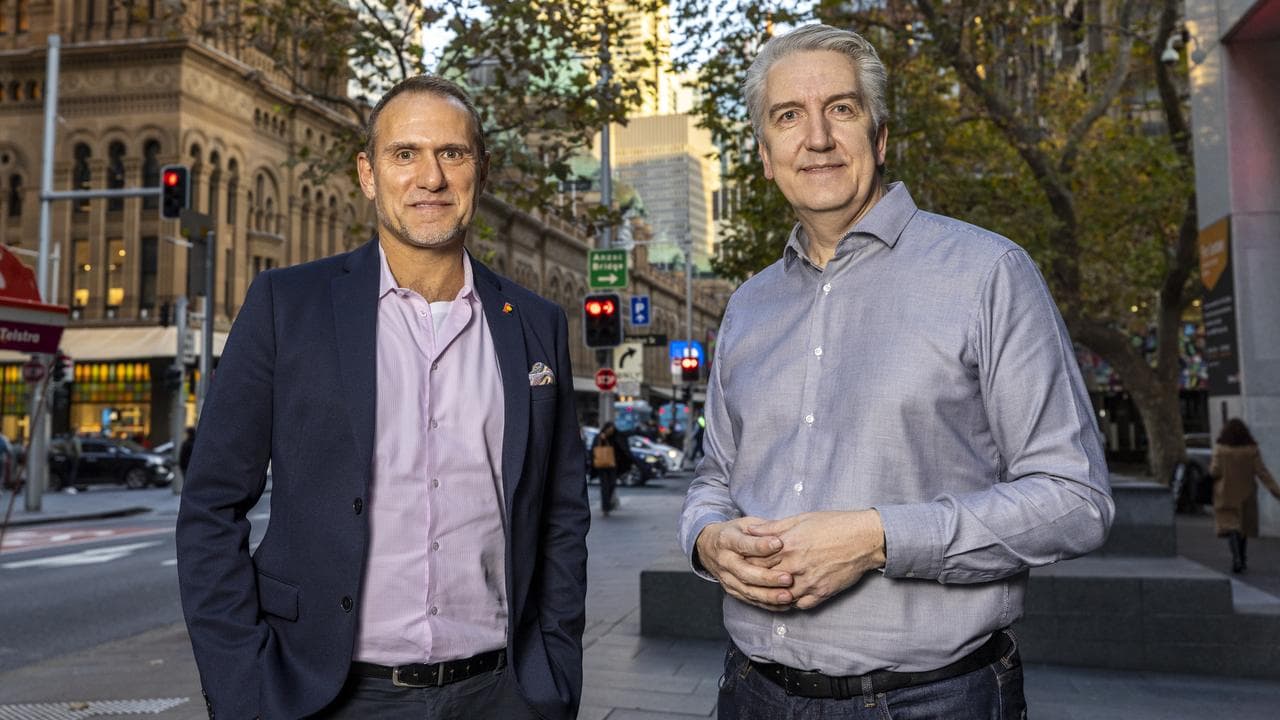
For Noongar man Shane Hearn, National Reconciliation Week provides an opportunity for the nation to have conversations about history and build understanding.
So when Professor Hearn, the chief executive of First Nations Media Australia, was approached by social media company LinkedIn to be part of its Connecting Voices project, he was happy to volunteer.
LinkedIn’s National Reconciliation Week initiative began on Saturday and includes a series of videos featuring prominent business leaders and First Nations professionals.
Prof Hearn is paired with Chris Ellis, the chief executive of price comparison site Finder Australia, for the Connecting Voices project.
LinkedIn's research shows 85 per cent of non-Indigenous workers claim to only know "a little" about Aboriginal and Torres Strait Islander people, culture and customs.
"People want to discuss it, they want to understand so I see this as a great opportunity to bring people into the space and talk about my Aboriginality and how that influences me in so many different ways," Prof Hearn said.
"I've often said that my culture is my superpower so it's an opportunity to have those conversations.
"I like that part of reconciliation because the central narrative is to build opportunities where we can have dialogue and build a shared meaning of what this means and why it's important to Aboriginal people like me."
The LinkedIn data showed nearly two thirds (64 per cent) of Indigenous workers had experienced cultural insensitivity in the workplace.
It also showed the number of non-Indigenous workers engaging in cultural online workplace training has increased, from 22 per cent in 2022 to 28 per cent in 2023. But more than half (58 per cent) of respondents said their workplace didn’t offer cultural sensitivity training related to Aboriginal and Torres Strait Islander people.
LinkedIn chief executive Matt Tindale said the findings had resulted in the company wanting to promote Indigenous voices and create a space for non-Indigenous people to listen.
“This year’s research results are particularly interesting as we observe the impact of the ‘great return’ to the office, post Covid lockdowns," he said.
"The increased interactions and socialisation, as well as the theme for this year’s National Reconciliation Week, Be a Voice for Generations, provides the chance for professionals to engage in important, potentially polarising, cultural conversations and learning opportunities in the workplace.”
Mr Ellis said he was thrilled to be partnering with Prof Hearn.
"By amplifying the voices of Indigenous people, I hope that we can foster a more inclusive and diverse workforce that celebrates and respects Australia's cultural heritage," he said.
Prof Hearn said non-Indigenous people in the business landscape had a crucial role to play in reconciliation.
"By promoting representation, empowerment, diversity, and cultural understanding, they contribute to a more inclusive, equitable, and prosperous society," he said.
National Reconciliation Week runs from May 27-June 3 every year.




